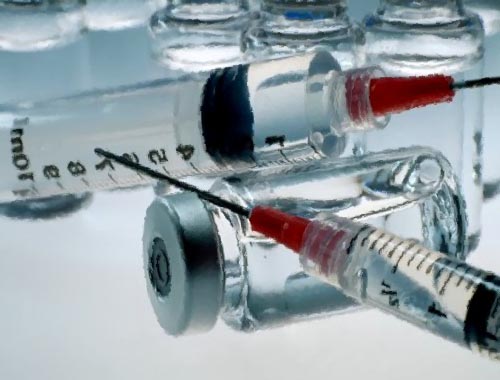Chemotherapy

Published: 18 Jun 2025
ICD9: 285.3 ICD10: D64.81 ICD11: QB97
Chemotherapy, often shortened to chemo, is a type of cancer treatment that uses drugs to kill cancer cells.
It works by targeting rapidly dividing cells, which is a characteristic of cancer cells. However, because chemo drugs travel throughout the body, they can also affect healthy cells that divide quickly, such as those in the hair follicles, bone marrow, and lining of the digestive system. This is why chemotherapy can cause side effects like hair loss, nausea, and fatigue.
Here's a more detailed breakdown:
![]() How it works: Chemotherapy drugs interfere with the cell division process. Different types of chemo drugs work in different ways, such as damaging the cell's DNA or interfering with the building blocks of cell growth.
How it works: Chemotherapy drugs interfere with the cell division process. Different types of chemo drugs work in different ways, such as damaging the cell's DNA or interfering with the building blocks of cell growth.
![]() Why it's used: Chemotherapy is used to:
Why it's used: Chemotherapy is used to:![]()

![]() Cure cancer: In some cases, chemotherapy can completely eliminate cancer.
Cure cancer: In some cases, chemotherapy can completely eliminate cancer.![]()

![]() Control cancer: When a cure isn't possible, chemotherapy can shrink tumors and stop cancer from spreading.
Control cancer: When a cure isn't possible, chemotherapy can shrink tumors and stop cancer from spreading.![]()

![]() Relieve symptoms: Chemotherapy can help alleviate pain and other symptoms caused by cancer.
Relieve symptoms: Chemotherapy can help alleviate pain and other symptoms caused by cancer.![]()

![]() Prepare for other treatments: Chemotherapy can be used before surgery or radiation therapy to shrink a tumor.
Prepare for other treatments: Chemotherapy can be used before surgery or radiation therapy to shrink a tumor.![]()

![]() Prevent cancer from returning: Chemotherapy can be used after surgery or radiation therapy to kill any remaining cancer cells.
Prevent cancer from returning: Chemotherapy can be used after surgery or radiation therapy to kill any remaining cancer cells.
![]() Types of chemotherapy: There are many different chemotherapy drugs available, and they are often used in combination. The specific drugs used depend on the type of cancer, its stage, and the patient's overall health.
Types of chemotherapy: There are many different chemotherapy drugs available, and they are often used in combination. The specific drugs used depend on the type of cancer, its stage, and the patient's overall health.
![]() Administration: Chemotherapy can be administered in various ways, including:
Administration: Chemotherapy can be administered in various ways, including:![]()

![]() Intravenously (IV): Through a vein.
Intravenously (IV): Through a vein.![]()

![]() Orally: As pills or capsules.
Orally: As pills or capsules.![]()

![]() Injection: Into a muscle or under the skin.
Injection: Into a muscle or under the skin.![]()

![]() Topically: As a cream or lotion (for skin cancer).
Topically: As a cream or lotion (for skin cancer).![]()

![]() Directly into a body cavity: Such as the abdomen or bladder.
Directly into a body cavity: Such as the abdomen or bladder.
![]() Side effects: Chemotherapy side effects vary depending on the drugs used, the dosage, and the patient's individual response. Common side effects include:
Side effects: Chemotherapy side effects vary depending on the drugs used, the dosage, and the patient's individual response. Common side effects include:![]()

![]() Fatigue
Fatigue![]()

![]() Nausea and vomiting
Nausea and vomiting![]()

![]() Hair loss
Hair loss![]()

![]() Mouth sores
Mouth sores![]()

![]() Diarrhea or constipation
Diarrhea or constipation![]()

![]() Increased risk of infection
Increased risk of infection![]()

![]() Anemia (low red blood cell count)
Anemia (low red blood cell count)![]()

![]() Changes in appetite
Changes in appetite![]()

![]() Nerve damage (neuropathy)
Nerve damage (neuropathy)![]()

![]() Cognitive changes ("chemo brain")
Cognitive changes ("chemo brain")
![]() Important considerations: Chemotherapy is a powerful treatment with potentially serious side effects. The decision to undergo chemotherapy should be made in consultation with a doctor, who can explain the risks and benefits and help the patient make an informed choice. Support is crucial during chemotherapy, so patient care should be in line with their mental and physical well-being.
Important considerations: Chemotherapy is a powerful treatment with potentially serious side effects. The decision to undergo chemotherapy should be made in consultation with a doctor, who can explain the risks and benefits and help the patient make an informed choice. Support is crucial during chemotherapy, so patient care should be in line with their mental and physical well-being.
In summary, chemotherapy is a powerful cancer treatment that uses drugs to kill cancer cells. While it can be effective, it also comes with potential side effects. If you or someone you know is considering chemotherapy, it's essential to discuss the risks and benefits with a doctor.